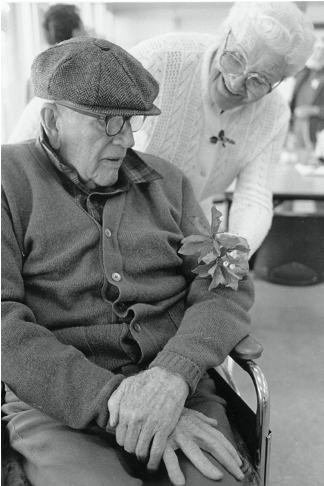Two Dementia Caregiving Programs Added to Best Programs for Caregiving
June 8, 2020
This article describes two of the 44 dementia caregiving programs found in Best Programs for Caregiving (bpc.caregiver.org), a free online database that helps organizations identify, compare and adopt best-fit programs for their clientele and community.
We are excited to announce the addition of two programs to the Best Programs for Caregiving (BPC) database. Learn more in the summaries below and be sure to click on the program names to access their full program profiles in BPC, which list program details, characteristics, real-world delivery site experiences, research evidence and steps/contact information for program adoption.
the Best Programs for Caregiving (BPC) database. Learn more in the summaries below and be sure to click on the program names to access their full program profiles in BPC, which list program details, characteristics, real-world delivery site experiences, research evidence and steps/contact information for program adoption.
Progressively Lowered Stress Threshold Intervention (PLST)
The PLST program is designed for caregivers of those in middle-stage dementia and who are experiencing caregiving-related depression, stress and/or anxiety. The program uses individual training and education sessions to support caregivers and provide them with tools to lower stress and address challenges.
Research shows that PLST improves well-being for both caregivers and care recipients.
PLST is free to organizations to adopt and add to their service offerings; and it can be delivered by professionals or paraprofessionals within the organization. Training and manuals are provided at no cost, enabling organizations to launch this proven program quickly to better serve their caregiver clients and community members.
Learn more about PLST, including detailed program information, research findings, and program impact and outcomes here.
This program features in-person, group sessions for caregivers of those living with dementia. It focuses on the caregiving experience, dementia friendly lifestyles, problem-solving, dealing with behavior issues and self-care. It is available in Spanish.
In a survey of 7 sites that delivered this program, sites on average agreed that there was:
- Improvement in:
- Caregiver well-being, strain and capacity to provide care
- Well-being of person with dementia
- Family/friend support for caregiver and person with dementia
- Decrease in:
- Hospital, emergency department & nursing home services
- Depression in person with dementia
- Caregiver well-being, strain and capacity to provide care
- Well-being of person with dementia
- Family/friend support for caregiver and person with dementia
- Hospital, emergency department & nursing home services
- Depression in person with dementia
Dealing with Dementia is available for adoption and implementation by organizations that support dementia caregivers. An annual cost of $250 includes license/certification, initial and refresher training, assessment tools, consultation assistance, and training for new or replacement staff who deliver the program.
Learn more about the program components and details at the program profile here. Profile also includes links to and summaries of research findings, as well as delivery site experiences and data.
About Best Programs for Caregiving
The database is a product of the collaboration among three leading organizations in the field of aging and caregiving: Benjamin Rose Institute on Aging, Center for Research & Education; Family Caregiver Alliance: National Center on Caregiving; and The Gerontological Society of America. Project funders are The John A. Hartford Foundation, Archstone Foundation and RRF Foundation for Aging.
